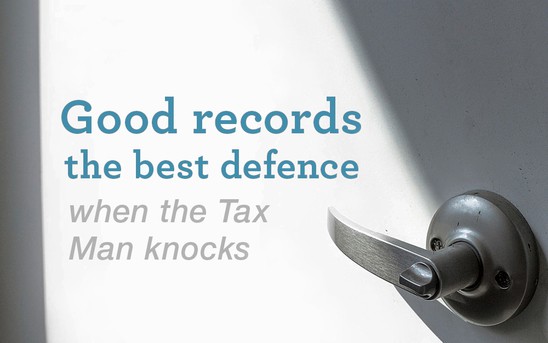
As the Australian Taxation Office (ATO) turns its attention to businesses and individuals who have used COVID-related support programs, many taxpayers are likely to find themselves on the tax man’s radar.
There are a number of red flags that can spark the ATO’s interest in your business or personal tax affairs. At present though, having applied for early release of your super, or receiving government support through JobKeeper, definitely puts you at a higher chance of an audit.
The ATO has identified a number of concerning and fraudulent behaviours with both these programs and is auditing taxpayer applications, so it’s worth understanding the regulator’s powers and the importance of good records when it comes to your tax.
ATO’s Authority To Audit
When it comes to the tax audit process, the ATO has significant powers. It has the authority to gather information about you and your personal circumstances from a range of sources, including other government agencies such as Services Australia. The ATO can also seek information about your business from financial institutions including your bank and insurers.
Generally, the ATO’s preferred strategy is to request information from you using a cooperative approach. If you fail to respond appropriately, however, the tax office may decide to use its statutory or ‘coercive powers’. This involves issuing legal notices seeking information from you and your advisers.
It’s sensible to act cooperatively with the ATO from the outset, rather than force the regulator into coercing you into compliance.
If you do receive an ATO request for information, we can help prepare the necessary documents and your initial responses. We can also be a useful guide through the process if you receive notification of an upcoming audit.
Why Good Records Matter
As a taxpayer, if you want to object to a tax assessment or question an audit decision made by the ATO, you need to prove the decision was incorrect or excessive.
In the event of an Administrative Appeals Tribunal review or Federal Court appeal about your tax assessment or audit, the statutory burden of proof rests with you. This means you must prove the assessment is excessive or otherwise incorrect.
There is a legal presumption the ATO’s assessment is correct, unless you can produce evidence to prove what the assessment should have been. That’s why it’s essential to keep good records to substantiate your overall tax affairs and any deductions you claim in your annual return.
Tips For Good Recordkeeping
The golden rule of good recordkeeping is that you must keep records that are relevant to your tax and super affairs for five years.
For businesses, your records must be safely stored in a way that protects them from being changed or damaged, and you must be able to show them to the ATO if requested. The records must be kept in English or be easily converted into English.
Your business records need to include the quarterly Super Guarantee (SG) contributions paid to your employees and how they were calculated, wages records (including directors’ fees), a list of creditors and debtors, stocktake records, tax invoices for purchases over $82.50, and your BPAY or PayPal records.
Common Record-Keeping Errors
According to the ATO, common business recordkeeping errors are failing to keep accurate records of all your cash and electronic transactions, and not regularly reconciling sales into your business accounting software.
Many businesses and individuals also fail to accurately split the private and business portions of an expense and don’t ensure they have sufficient records to substantiate their claims for tax deductions.
The ATO can seek information or documents at any time – either before starting a compliance activity or during a review or audit – so it’s best to be prepared. An easy first step to assessing if your business records are up to scratch could be checking out the ATO’s online Recordkeeping Evaluation Tool.
If you would like help with an information request or audit notification from the ATO, call our office today on 02 9299 2292 or email accountant@moneyclip.com.au where our accounting firm Moneyclip Professionals will be able to assist you.